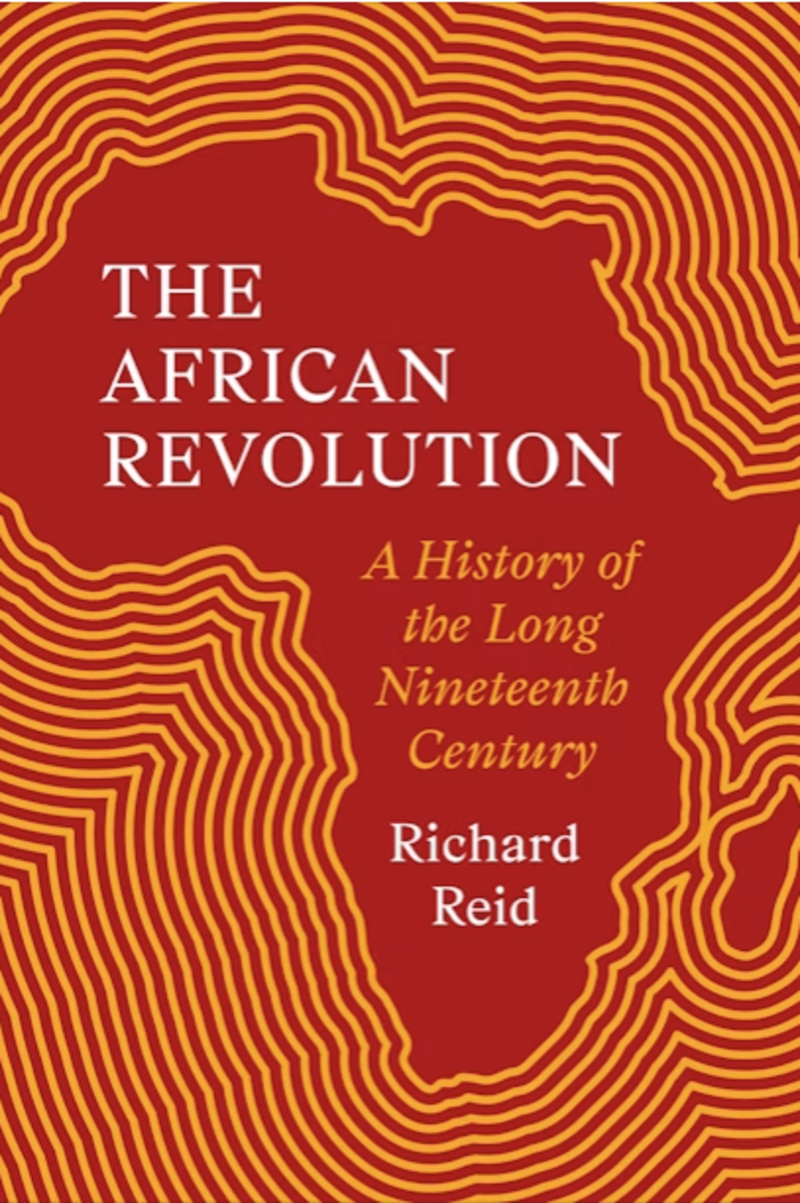Professor Richard Reid says:
In The African Revolution, I examine Africa’s long, global nineteenth century, an era of revolutionary ferment and violent creativity for African states, societies and economies. I argue that the decades preceding what became known as ‘The Scramble for Africa’ between the 1870s and the 1910s have for too long been neglected, oversimplified, or even ignored altogether in favour of a focus on the imposition and construction of European colonial rule.
In this book, I suggest that the ‘Scramble’ and the resultant imperial order cannot be understood without an in-depth appreciation of Africa’s own transformative nineteenth century, which witnessed new economic patterns and political systems, frequently underpinned by innovative forms of violence, which themselves ultimately intersected with similar dynamics emanating from Europe.
The book is constructed around a stretch of road in nineteenth-century East Africa – one of the continent’s most vibrant commercial highways – as a narrative entry into this revolutionary epoch, weaving the larger analysis around the illustrative characters and events on the road. There is an examination of political instability and reformism, of economic innovation and aspiration, and of cultures and communities of intermediacy. The latter were representative of the liminality which had defined much of Africa’s global nineteenth century. Moreover, volatility in Europe itself increasingly manifested itself in overseas intrusions, intersecting with turbulent creativity within Africa.
Ultimately, my argument is that the ‘Scramble’ was as much the culmination of African revolutionary dynamics as it was of European imperial expansionism. Increasingly, however, distorted visions of historical development and hegemonic conceptualisations of what supposedly constituted ‘modernity’ led to the reframing of Africa’s transformative, global nineteenth century as mere prelude to the European colonial moment.
Publishers Overview
Africa’s long nineteenth century was a time of revolutionary ferment and cultural innovation for the continent’s states, societies, and economies. Yet the period preceding what became known as “the Scramble for Africa” by European powers in the decades leading up to World War I has long been neglected in favor of a Western narrative of colonial rule. The African Revolution demonstrates that “the Scramble” and the resulting imperial order were as much the culmination of African revolutionary dynamics as they were of European expansionism.
In this monumental work of history, Richard Reid paints a multifaceted portrait of a continent on the global stage. He describes how Africa witnessed the emergence of new economic and political dynamics that were underpinned by forms of violence and volatility not unlike those emanating from Europe. Reid uses a stretch of road in what is now Tanzania—one of the nineteenth century’s most vibrant commercial highways—as an entry point into this revolutionary epoch, weaving a broader story around characters and events on the road. He integrates the African experience with new insights into the deeper currents in European societies before and after conquest, and he shows how the Africans themselves created opportunities for European expansion.
Challenging the portrayal of Africa’s transformative nineteenth century as a mere prelude to European colonialism, The African Revolution reveals how this turbulent yet hugely creative era for Africans intersected with global intrusions to shape the modern age.




